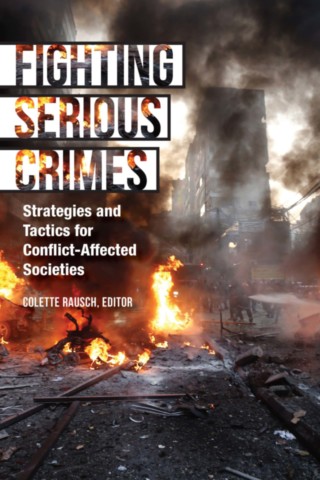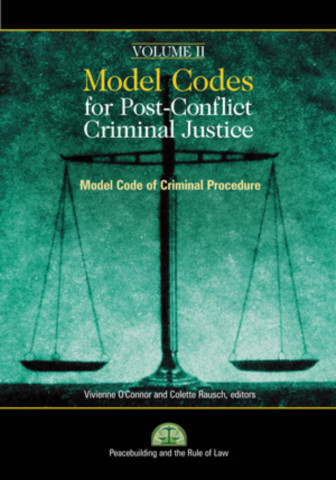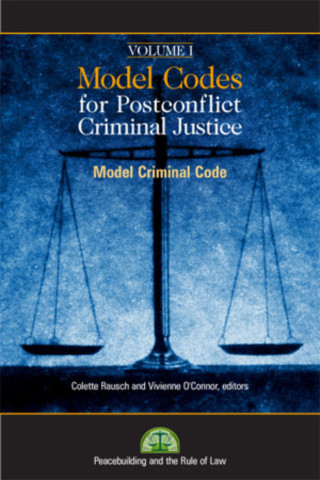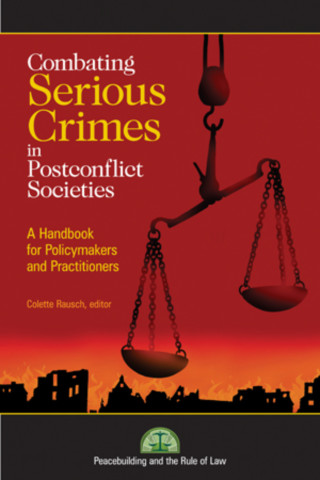Vivienne O'Connor
Vivienne O'Connor is an independent rule of law consultant with fifteen years of experience in the field. She heads TransformLaw, an interdisciplinary consulting firm that provides strategic advice on how to facilitate transformative legal change processes in conflict-affected and developing countries. From 2007 until 2016, Vivienne worked for USIP as a senior rule of law adviser and as director of the International Network to Promote the Rule of Law. She has engaged in rule of law projects in numerous countries that include Afghanistan, Burma, Haiti, Liberia, Nepal, and Syria. Vivienne has trained hundreds of rule of law practitioners through the “Rule of Law Practitioner’s Course” that she designed and delivered for USIP, the UK Department for International Development, and the Australian government. Vivienne holds a bachelor’s degree in civil law, a master’s degree in international human rights law (LLM), and a PhD in law from the National University of Ireland, Galway. She is the author of several books, including volumes 1 and 2 of Model Codes for Postconflict Criminal Justice. She is currently writing a monograph titled Transformative Rule of Law: Theory and Practice.
Author's Books
Serious crimes—such as violent extremism, political violence, organized crime, and corruption—fuel violent conflict and thwart peacebuilding efforts. Fragile states with weak institutions and governance are unable to stem the tide of threats that serious crimes pose to peace. The consequences are all too evident across the globe: countries engulfed in political turmoil, conflicts that spiral into devastating wars, and tides of refugees fleeing instability and violence. Fighting Serious Crimes: Strategies and Tactics for Conflict-Affected Societies is an invaluable resource for anyone battling serious crimes in societies seeking to avoid conflict, to escape from violence, or to recover and rebuild. Packed with practical guidance, this volume includes real-world examples from more than twenty of today’s conflict zones, including Libya, Yemen, Iraq, Afghanistan, Somalia, and Colombia. All the major challenges are covered, from initial assessment to legal and institutional reform, investigation to prosecution, criminal intelligence to witness protection, the use of international tribunals to the role of international military forces. The volume draws on the firsthand experience of dozens of practitioners, distilling what they have learned into clearly organized and highly readable text that is supplemented by checklists and sidebars that help readers conduct assessments, identify international and regional legal instruments (such as treaties), and complete a host of other key tasks.
Volume II of Model Codes for Post-Conflict Criminal Justice continues the path-breaking work of volume I, providing an indispensable resource for those striving to reestablish the rule of law in societies recently wracked by violent conflict.
Of unparalleled breadth, depth, and authority, the Model Codes for Post-Conflict Criminal Justice is a criminal law reform tool tailored to the needs of countries emerging from conflict. Its three volumes present four complete legal codes that national and international actors can use to create, overhaul, update, or plug gaps in the criminal laws in individual post-conflict states. Each volume offers not only substantive legal provisions but also expert commentary that explains wording choices, elaborates on the content of the provisions, and highlights associated considerations and reforms.
This volume, the first to be published (the second and third volumes will appear in spring 2008 and spring 2009), opens with a User’s Guide that explains the development, purpose, and content of the book, and then lays out a comprehensive Model Criminal Code. The code is divided into two parts: a “General Part” that contains general principles of criminal law and penalties, and a “Special Part” that presents a catalog of criminal offenses, including those such as sexual offenses, organized crime, and corruption that are particularly common or destabilizing in post-conflict environments.
The Model Codes for Post-Conflict Criminal Justice is the culmination of a six-year project spearheaded by the United States Institute of Peace and the Irish Centre for Human Rights, in collaboration with the UN Office of the High Commissioner for Human Rights and the UN Office on Drugs and Crime. More than two hundred experts and practitioners from across the world were involved in the drafting, vetting, and revision of the provisions and their commentaries. This enormous breadth of expertise has allowed the Model Codes to draw on lessons learned in a variety of post-conflict states and from the laws of a remarkable variety of the world’s legal systems and traditions. The result is an indispensable resource for those striving to reestablish the rule of law in societies recently wracked by violent conflict.
—Each copy of this volume contains a CD of the complete text.
Adalbert Gross, Michael E. Hartmann, Deborah Isser, Andrew Mackay, Vivienne O'Connor, David C. Ralston and Colette Rausch
Presents broad guidelines and specific prescriptions for combating serious crime in societies emerging from conflict.




